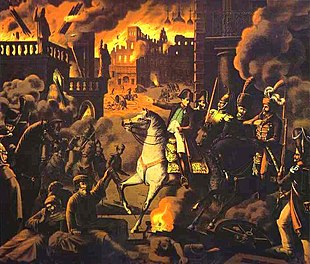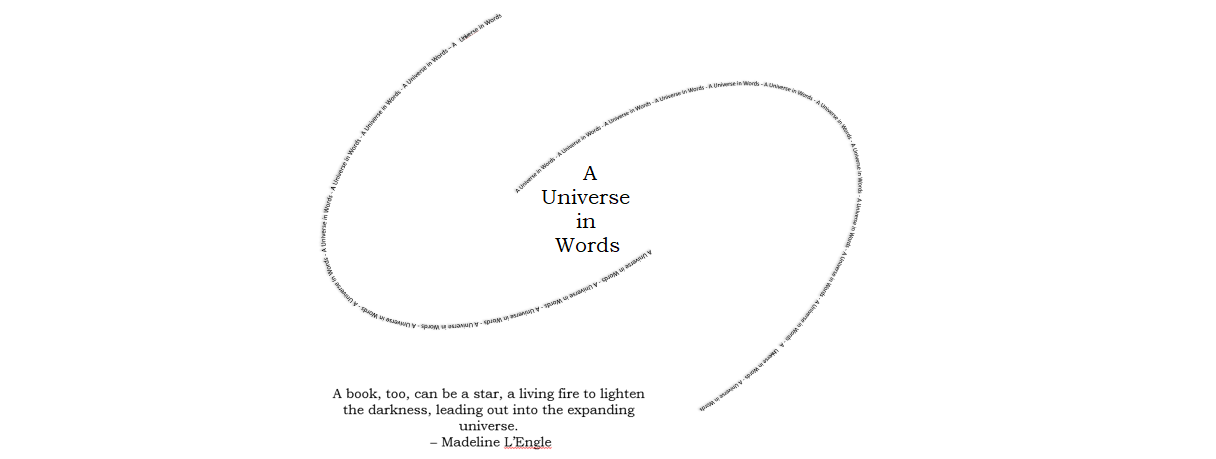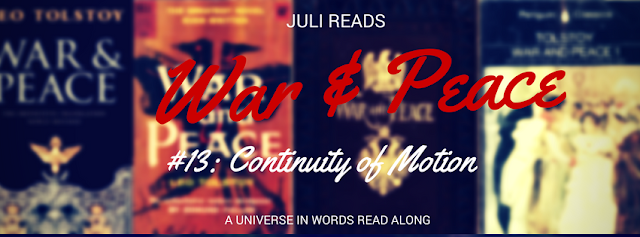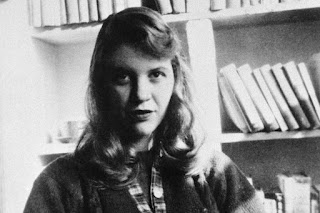War and Peace #13: III.xi.19 - III.xiii.19
I can't believe I am genuinely about to finish War and Peace... it's such a paperweight of a novel! Although it's taken me a fair time, it is still strange to think that this is my penultimate post about War and Peace! I'm hoping to read the rest of it over the weekend so I can post about it before I fly off to China next week. (More about that on Monday!) So, without further ado, let's get down and dirty with the Russians!
Summary of Chapters:
A lot has happened since I last wrote about War and Peace. We left a very wounded Prince Andrew in the care of the Rostovs, without Natasha knowing, Meanwhile, chaos breaks out in Moscow, which the Russian in charge, Rostopchin, can't prevent and, quite honestly, doesn't even try to. There is a rather nice analogy to a queenless hive, in fact. When Napoleon and the French arrive they are also rather helpless, in fact only contributing to the Burning of Moscow. With all his friends gone and locked up in his mentor's home, Pierre returns to his crazy theories and comes to the "realization" he needs to assassinate Napoleon. Outside of Moscow, Natasha finds out Prince Andrew is a part of their entourage and seeks him out. The two re-confess their love for each other and she becomes his caretaker. Pierre meanwhile saves the life of an Armenian girl and is spontaneously arrested for it by the French. In St. Petersburg, meanwhile, everyone is going about their ordinary, pretentious lives. Except Helene is "ill", "in trouble", i.e. she finds herself pregnant by one of her potential suitors and is having it seen to. Unfortunately, however, she dies of complications. Quite a sad end for an interesting woman. This is quickly followed by the death of Prince Andrew, who is unable to recover from his wounds. Nursed by a heartbroken Natasha till the end, he dies after seeing Princess Mary and his son one last time.
Nicholas meanwhile continues to be conflicted between his newly found admiration for Princess Mary and his affection for Sonya. The latter, under pressure from Countess Rostov writes to Nicholas, freeing him from all obligations to her. Pierre has no time for love on his mind as he becomes a French prisoner of war. He witnesses the execution of fellow prisoners and finds himself locked up in rather horrid circumstances. In a way only possible with Pierre, however, he finds a kind of peace in how restricted his life is now, with none of the usual temptations. However, this changes once the French decide to leave Moscow and start a retreat, after suffering greater losses at the Battle of Borodino than they had expected. He and the other prisoners are forced to march, no matter how wounded or malnourished they are. The Russian army, despite its infighting and relative lack of warfare success, is hailed victor.
Feel of the Chapters:
As can be guessed from the summary above, a lot happens in these chapters. There is a constant back and forth between different characters, but now the large majority is involved in one way or another in the war against the French. As the Rostovs flee from Moscow, with Prince Andrew, the consequence of war on civilians is highlighted a bit but with how they are as a family one doesn't really feel it. In contrast, Pierre's experiences in the burning and ransacked Moscow do come quite close. His attempts to save a child as well as his experiences as a prisoner of war are amazingly described but also darken the tone of the novel significantly. The deaths of Helene and Prince Andrew also signal that both the novel and the world it inhabits are coming to an end. The Bolkonskis were "old school nobility", while the social climbing of the Kuragins was also a part of that old world, but th war with France changes the structure of Russia to quite a large extent.
General Points:
Summary of Chapters:
A lot has happened since I last wrote about War and Peace. We left a very wounded Prince Andrew in the care of the Rostovs, without Natasha knowing, Meanwhile, chaos breaks out in Moscow, which the Russian in charge, Rostopchin, can't prevent and, quite honestly, doesn't even try to. There is a rather nice analogy to a queenless hive, in fact. When Napoleon and the French arrive they are also rather helpless, in fact only contributing to the Burning of Moscow. With all his friends gone and locked up in his mentor's home, Pierre returns to his crazy theories and comes to the "realization" he needs to assassinate Napoleon. Outside of Moscow, Natasha finds out Prince Andrew is a part of their entourage and seeks him out. The two re-confess their love for each other and she becomes his caretaker. Pierre meanwhile saves the life of an Armenian girl and is spontaneously arrested for it by the French. In St. Petersburg, meanwhile, everyone is going about their ordinary, pretentious lives. Except Helene is "ill", "in trouble", i.e. she finds herself pregnant by one of her potential suitors and is having it seen to. Unfortunately, however, she dies of complications. Quite a sad end for an interesting woman. This is quickly followed by the death of Prince Andrew, who is unable to recover from his wounds. Nursed by a heartbroken Natasha till the end, he dies after seeing Princess Mary and his son one last time.
Nicholas meanwhile continues to be conflicted between his newly found admiration for Princess Mary and his affection for Sonya. The latter, under pressure from Countess Rostov writes to Nicholas, freeing him from all obligations to her. Pierre has no time for love on his mind as he becomes a French prisoner of war. He witnesses the execution of fellow prisoners and finds himself locked up in rather horrid circumstances. In a way only possible with Pierre, however, he finds a kind of peace in how restricted his life is now, with none of the usual temptations. However, this changes once the French decide to leave Moscow and start a retreat, after suffering greater losses at the Battle of Borodino than they had expected. He and the other prisoners are forced to march, no matter how wounded or malnourished they are. The Russian army, despite its infighting and relative lack of warfare success, is hailed victor.
Feel of the Chapters:
As can be guessed from the summary above, a lot happens in these chapters. There is a constant back and forth between different characters, but now the large majority is involved in one way or another in the war against the French. As the Rostovs flee from Moscow, with Prince Andrew, the consequence of war on civilians is highlighted a bit but with how they are as a family one doesn't really feel it. In contrast, Pierre's experiences in the burning and ransacked Moscow do come quite close. His attempts to save a child as well as his experiences as a prisoner of war are amazingly described but also darken the tone of the novel significantly. The deaths of Helene and Prince Andrew also signal that both the novel and the world it inhabits are coming to an end. The Bolkonskis were "old school nobility", while the social climbing of the Kuragins was also a part of that old world, but th war with France changes the structure of Russia to quite a large extent.
General Points:
- Tolstoy loves discussing history and what it is made up of. I truly enjoy reading his thoughts, how history flows and indivudla people are simply guided by these flows and can only do so much to lay claim to "having changed history".
- Prince Andrew becomes a bit, how shall I put it, off-putting in his final few days. Although there is a nobility to him, his attitude of already having transcended this mortal sphere makes him inadvertently cruel to Natasha and Princess Mary.
- No matter how much Tolstoy enjoys his own characters, he can't leave history behind. He always returns to the battlefield, describing battles, martial manoeuvres and the various opinions of various generals. Some of these, such as Kutuzov, are quite familiar to the reader, but at the same time there are so many people that it makes my head spin at times.
- Helene dying of the complications of an abortion is almost a shame. On the one hand it feels like a punishment for her forwardness and her scheming, yet on the other hand even Tolstoy seems to pity her in how she is judged by other characters. He has a covert sympathy for her, I believe, and for her position as woman in society.
- Pierre is still not my favourite character, but now that he finds some peace and quiet, even if it is as a prisoner, his sensibilities become a bit more interesting. He meets another prisoner, Platon Karataev, who engages him in conversation and teaches him some humility through his own behaviour.
 |
| The Burning of Moscow - unknown German artist |
Something Extra:
One of the biggest moments in these chapters is the the Fire of Moscow in 1812. It all broke ut on the 14th of September after Russian troops and civilians abandon the city to the French troops. Although the Russians techniqcally won the Battle of Borodino, they don't have the strength to stage another battle and therefore retreat. The Fire raged for four days before it was finally put out and thereby destroyed three-quarters of the city.
The above-mentioned Rostopchin caused some of the fires to be started so the French wouldn't be able to take control of the Kremlin, for example. But still no explanation has been found for how most of the fire started, and why they weren't put out. Part of the reason might have been, however, that Moscow was still largely constructed of wood. However, it makes for one of the saddest moments in the novel when both the Rostovs and later the prisoners of war look at their ruined city. And as an extra extra: one of Rachmaninoff's Preludes is even named after it, occasionally.
Quotes:
'The other was that vague and quite Russian feeling of contempt for everything conventional, artificial, and human - for everything the majority of men regard as the greatest good in the world.' p.712
This is how Tolstoy describes the feelings that convince Pierre to consider attempting to assassinate Napoleon. I love how he, perhaps unconsciously, presents all Russians as slightly snobbish. On the other hand I have to admit that this feeling is also what drives me on quite a lot so what does that say about me?
'Man's mind cannot grasp the causes of events in their completeness, but the desire to find those causes is implanted in man's soul.' p.777
I am definitely a fan of how Tolstoy describes history and man's role in it. I agree with him that in every human being there seems to be that desire to figure out the why's and how's of the world.
'The absence of suffering, the satisfaction of one's needs, and consequent freedom in the choice of one's occupation, that is, of one's way of life, now seemed to Pierre to be indubitably man's highest happiness.' p. 797
I have to agree with Pierre here, this sounds like the height of happiness! If one could order one's life based on one's free choice, there would be nothing to complain about. And the absence of suffering is something we'd all like, I think.




Comments
Post a Comment